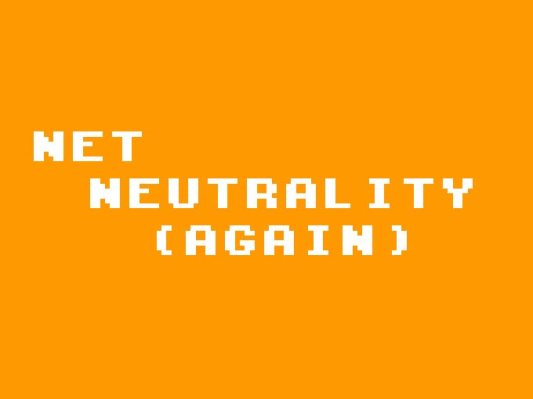A preliminary Congressional GOP net neutrality plan earned modest praise today from the Internet Association, while Senator Al Franken tried to rally his troops this morning in the opposite direction. Congressional hearings on net neutrality are planned for next week.
The Internet Association, which counts Facebook and Uber as members, managed to produce a lukewarm statement concerning the GOP plan, saying that despite movement in Congress, it will continue to press the FCC to proceed with its own work.
Here’s the group’s comment [emphasis: TechCrunch]:
The Internet Association appreciates Congress’ support for net neutrality principles applying to both mobile and fixed broadband – specifically a ban on paid prioritization, blocking, and discrimination. What really matters is the Internet user’s online experience and the creation of strong enforceable rules to protect an open Internet. As we review Congressional proposals, we will continue to push the FCC to produce enforceable rules. The path forward is not a binary choice, and we have a responsibility to protect a free and open Internet by working with regulators, legislators, and stakeholders.
The inclusion of wireless along with wireline in the coming GOP proposal was surprising — the concept was usually advocated for, in my experience, by the more diehard advocates of net neutrality.
Senator Franken, however, was less impressed:
Congressional Republicans are expected to file a watered-down bill that’s exactly what what the opposition and their lobbyists want.
The senator, in his short reply, did not explain what he thinks makes the GOP plan “watered-down.” The GOP plan, which remains nascent, includes 11 initial points, most of which — no blocking of content, for example — are reasonable.
The last three, however, are a bit troubling:
-
Classify broadband Internet access as an information service under the Communications Act
-
Clarify that Section 706 of the Telecommunications Act may not be used as a grant of regulatory authority
-
Direct the FCC to enforce and abide by these principles
The first precludes the FCC from use of Title II, which isn’t surprising, given the GOP’s general view on the matter. The second is odd, as it seems to strip the other, generally cited source of regulatory authority that the FCC has considered using to underpin net neutrality regulations. The final point then essentially binds the FCC to the will of Congress.
We should not get too far in front of our skis before we see a real proposal, but it seems that the new GOP majority in Congress wants to wrest the entire issue of net neutrality away from the FCC.
Key to the current net neutrality landscape is the simple fact that FCC Chairman Tom Wheeler appears to be racing forward with a plan to use authority under Title II of the Communications Act to reclassify broadband as a common carrier. Doing so would grant the FCC wide regulatory authority over Internet connectivity.
In the face of that, the GOP is crafting a plan of its own, while also pushing legislation that would remove the Title II option from the FCC’s quiver; the FCC is holding a vote on the matter on February 26. So, time is short, and the GOP in Congress, instead of merely saying no, is working on its own plan.
